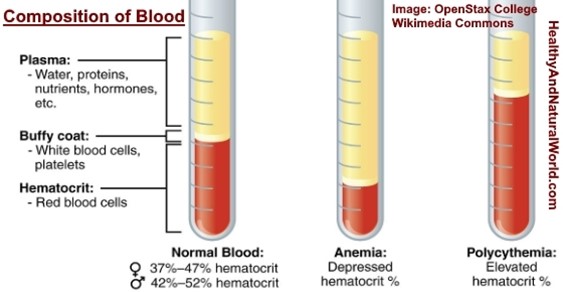What is the decrease in red blood cell count that may indicate postpartum hemorrhage?
Hematocrit < 30%
Hematocrit > 30%
Hematocrit < 40%
Hematocrit > 40%
The Correct Answer is A
Hematocrit is the percentage of red blood cells in the blood.
A decrease in hematocrit indicates blood loss or anemia. Postpartum hemorrhage (PPH) is defined as blood loss of ≥ 500–1000 ml within 24 hours after delivery. PPH can cause a significant drop in hematocrit and hemoglobin levels, which can lead to hypovolemia and shock. A normal hematocrit range for women is 36% to 48%.
Therefore, a hematocrit level below 30% may indicate PPH.
Choice B. Hematocrit > 30% is wrong because it does not indicate a decrease in red blood cell count or blood loss. A hematocrit level above 30% may be normal or indicate dehydration, polycythemia, or other conditions.
Choice C. Hematocrit < 40% is wrong because it is within the normal range for women and does not indicate a significant decrease in red blood cell count or blood loss.
Choice D. Hematocrit > 40% is wrong because it does not indicate a decrease in red blood cell count or blood loss.
A hematocrit level above 40% may be normal or indicate dehydration

Nursing Test Bank
Naxlex Comprehensive Predictor Exams
Related Questions
Correct Answer is A
Explanation
Heavy vaginal bleeding in cesarean delivery that may indicate postpartum hemorrhage is more than 500 mL.
Postpartum hemorrhage (PPH) is severe bleeding and loss of blood after childbirth.It’s a serious and dangerous condition that can lead to death.
Choice B is wrong because more than 1000 mL of blood loss is too high for the definition of PPH after cesarean delivery.
Choice C is wrong because less than 500 mL of blood loss is normal after cesarean delivery.
Choice D is wrong because less than 1000 mL of blood loss is not considered heavy bleeding after cesarean delivery.
Correct Answer is A
Explanation
Hematocrit is the percentage of red blood cells in the blood.
A decrease in hematocrit indicates blood loss or anemia.Postpartum hemorrhage (PPH) is defined as blood loss of ≥ 500–1000 ml within 24 hours after delivery.PPH can cause a significant drop in hematocrit and hemoglobin levels, which can lead to hypovolemia and shock.A normal hematocrit range for women is 36% to 48%.
Therefore, a hematocrit level below 30% may indicate PPH.
Choice B. Hematocrit > 30% is wrong because it does not indicate a decrease in red blood cell count or blood loss.A hematocrit level above 30% may be normal or indicate dehydration, polycythemia, or other conditions.
Choice C.Hematocrit < 40% is wrong because it is within the normal range for women and does not indicate a significant decrease in red blood cell count or blood loss.
Choice D. Hematocrit > 40% is wrong because it does not indicate a decrease in red blood cell count or blood loss.
A hematocrit level above 40% may be normal or indicate dehydration

Whether you are a student looking to ace your exams or a practicing nurse seeking to enhance your expertise , our nursing education contents will empower you with the confidence and competence to make a difference in the lives of patients and become a respected leader in the healthcare field.
Visit Naxlex, invest in your future and unlock endless possibilities with our unparalleled nursing education contents today
Report Wrong Answer on the Current Question
Do you disagree with the answer? If yes, what is your expected answer? Explain.
Kindly be descriptive with the issue you are facing.
